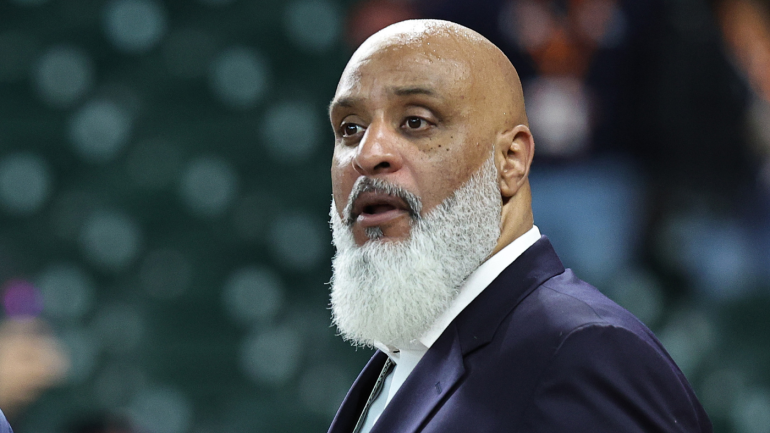
The uneven, oft-glacial pace of Major League Baseball's offseason has left onlookers and officials with ample time to dream up potential fixes. One of the most popular of those ideas has been the concept of a signing deadline -- an artificial insertion that would hope to stimulate teams and players into deals in rapid-fire succession, creating the kind of excitement that can be found in other, capped leagues. (MLB's offseason featured a similar frenzy ahead of the owner-mandated lockout in winter 2021.)
Count Tony Clark, the head of MLB Players' Association, as someone who is against the implementation of an offseason signing deadline.
"A deadline, in all likelihood, is going to do more damage to players in those conversations than the other way around," Clark told the Associated Press Saturday.
MLB previously proposed a signing deadline during the 2019-20 offseason. The MLBPA rejected that idea, with senior director Bruce Meyer explaining that it wasn't in the "best interests of players." Commissioner Rob Manfred recently reiterated his desire for an offseason signing deadline, one that would fall sometime in December.
"We would prefer to have a free-agent signing period, ideally probably in December with a deadline that drove people to make their deals, get things settled. We actually made proposals to that effect, to the MLBPA. They were not warmly received," Manfred said earlier in February, referring to a mid-agreement proposal in 2019.
"One of the tactics that's available to player representatives is to stretch out the negotiation in the belief that they're going to get a better deal," Manfred told the Associated Press. "That's part of the system right now. There's not a lot we can do about it. But certainly from an aspirational perspective, we'd rather have two weeks of flurried activity in December, preferably around the winter meetings."
It's worth remembering that Manfred works for the franchise owners, which explains why he would single out the player side of the negotiation equation. Front offices and owners absolutely share in the blame for slow-moving offseasons -- be it because of an unwillingness to spend or an indifference toward fielding competitive rosters.
Clark isn't the only notable individual to come out against a signing deadline. Agent Scott Boras, who has dealt with his share of deadlines while representing amateur players, responded to Manfred's idea by telling The Athletic: "Deadlines are death-lines to the players. It's a death of their right (to free agency). It's an artificial reason not to get your value. Teams cannibalize deadlines. Everything they would do would be around the deadline. 'I'll wait and get this value at this time, because I have a deadline,' rather than, 'What's the player worth?'"
It's unclear what MLB's policy entailed for players who did not sign by the deadline -- if they would have their next contract capped or penalized in some matter. At some point, though, the market would have to reopen. And, if there was no actual incentive to sign (or make legitimate offers) before the signing deadline, then there would be nothing stopping players from remaining on the open market through the shutdown.
MLB is ultimately part of the entertainment industry. Slow, uninteresting offseasons are not good for business as they allow fans to become disengaged from the product. Still, it's hard to see the two sides coming to an agreement on this matter -- their aims are too different, and there are too many unanswered questions about the concept.






















